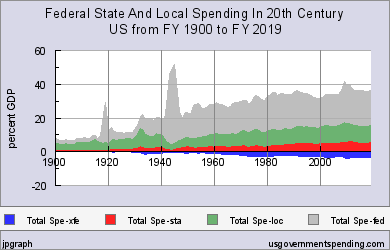NW-Bound
Give me a museum and I'll fill it. (Picasso) Give me a forum ...
- Joined
- Jul 3, 2008
- Messages
- 35,712
I think the existence of the debt ceiling at all is idiotic. Remember, Congress is the branch of government that makes spending decisions. So if they don't raise the debt ceiling, they are essentially sending the Executive branch two conflicting sets of instructions.
1. Spend all of this money that we told you to spend
2. Don't borrow money to do it.
Also do not forget that the US President has veto power, and can reject a budget approved by Congress if he does not like it. And the balance of power in Congress is such that it never has the majority to overcome that veto, no matter which party is in control.

